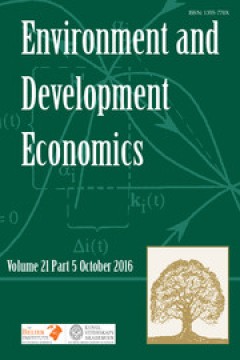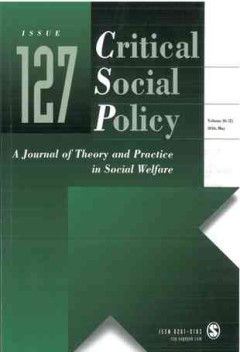Filter by

Social Research, Volume 83, Number 1, Spring 2016
- Edition
- -
- ISBN/ISSN
- 0037-783X
- Collation
- -
- Series Title
- -
- Call Number
- -
- Edition
- -
- ISBN/ISSN
- 0037-783X
- Collation
- -
- Series Title
- -
- Call Number
- -

Media Culture & Society, Volume 38, Number 5, July 2016
- Edition
- -
- ISBN/ISSN
- 0163-4437
- Collation
- -
- Series Title
- -
- Call Number
- -
- Edition
- -
- ISBN/ISSN
- 0163-4437
- Collation
- -
- Series Title
- -
- Call Number
- -

Environmental History, Volume 21 Issue 3 July 2016
- Edition
- -
- ISBN/ISSN
- 1084-5453
- Collation
- -
- Series Title
- -
- Call Number
- -
- Edition
- -
- ISBN/ISSN
- 1084-5453
- Collation
- -
- Series Title
- -
- Call Number
- -

Environmental History, Volume 21 Issue 2 April 2016
- Edition
- -
- ISBN/ISSN
- 1084-5453
- Collation
- -
- Series Title
- -
- Call Number
- -
- Edition
- -
- ISBN/ISSN
- 1084-5453
- Collation
- -
- Series Title
- -
- Call Number
- -

Environmental History, Volume 21 Issue 1 January 2016
- Edition
- -
- ISBN/ISSN
- 1084-5453
- Collation
- -
- Series Title
- -
- Call Number
- -
- Edition
- -
- ISBN/ISSN
- 1084-5453
- Collation
- -
- Series Title
- -
- Call Number
- -

Environment and Development Economics, Volume 21 - Issue 4 - August 2016
- Edition
- -
- ISBN/ISSN
- 1355770X
- Collation
- -
- Series Title
- -
- Call Number
- -
- Edition
- -
- ISBN/ISSN
- 1355770X
- Collation
- -
- Series Title
- -
- Call Number
- -

Environment and Development Economics,Volume 21 - Issue 3 - June 2016
- Edition
- -
- ISBN/ISSN
- -
- Collation
- -
- Series Title
- -
- Call Number
- -
- Edition
- -
- ISBN/ISSN
- -
- Collation
- -
- Series Title
- -
- Call Number
- -

The critical mass approach to achieve a deal on green goods and services: wha…
In July 2014 a group of 14 countries (the ‘Davos Group’) launched negotiations on liberalizing trade in ‘green goods’ (also known as environmental goods – EGs), focusing on the elimination of tariffs for a list of 54 products. With an average tariff of 1.8 per cent, this group has little to offer even if the list were extended to the 411 products on the ‘WTO list’. Taking into account tariff di…
- Edition
- Volume 21 - Issue 3 - June 2016, pp. 393-414
- ISBN/ISSN
- 1355770X
- Collation
- -
- Series Title
- Environment and Development Economics
- Call Number
- -

A corporate-crime perspective on fisheries: liability rules and non-compliance
The existing fisheries economics literature analyzes compliance problems by treating the fishing firm as one cohesive unit, but in many cases violations are committed by agents acting on behalf of a firm. To account for this, we analyze the principal–agent relationship within the fishing firm. In the case where the firm directly benefits from illegal fishing, the firm must induce its crew to vi…
- Edition
- Volume 21 - Issue 3 - June 2016, pp. 371-392
- ISBN/ISSN
- 1355770X
- Collation
- -
- Series Title
- Environment and Development Economics
- Call Number
- -

Patterns of frontier development: a dynamic model of resource extraction in t…
Developing countries are known to exploit their resource frontier to achieve growth objectives and reduce poverty. This can lead to long-term positive outcomes or – if resource exploitation is unsustainable – lose–lose outcomes that leave populations and ecosystems worse off. This paper introduces a dynamic model of resource exploitation to explain how regions may succumb to, avoid or escape th…
- Edition
- Volume 21 - Issue 3 - June 2016, pp. 350-370
- ISBN/ISSN
- 1355770X
- Collation
- -
- Series Title
- Environment and Development Economics
- Call Number
- -

The colonial origins of deforestation: an institutional analysis
This paper investigates whether inherited colonial legacies influence deforestation rates in 60 former colonized developing countries. It is hypothesized that differences in deforestation among countries can be attributed to their colonial legacies shaping the current impact of the institutional background on deforestation. Overall, the author finds that institutions defined as the extent of de…
- Edition
- Volume 21 - Issue 3 - June 2016, pp. 318-349
- ISBN/ISSN
- 1355770X
- Collation
- -
- Series Title
- Environment and Development Economics
- Call Number
- -

A matter of good taste: investigating preferences for in-house water treatmen…
Low demand for safe water may partly result from a perceived distaste towards or the inconvenience of treatment methods. This paper analyzes preferences for water quality improvements in peri-urban Phnom Penh. The authors first analyze data from a discrete choice experiment in which respondents selected their preferred alternative from generic options varying in cost, taste acceptability, effec…
- Edition
- Volume 21 - Issue 3 - June 2016, pp. 291-317
- ISBN/ISSN
- 1355770X
- Collation
- -
- Series Title
- Environment and Development Economics
- Call Number
- -

Analysis of energy poverty and its implications for sustainable development i…
This study estimates and analyzes the incidence and determinants of energy poverty in Nigeria based on a simple multidimensional energy poverty index that it constructed. It also highlights the implications of energy poverty for sustainable development in Nigeria. The headcount ratio and the logistic regression technique are used. The study utilizes the Nigeria Living Standard Survey data set o…
- Edition
- Volume 21 - Issue 3 - June 2016, pp. 273-290
- ISBN/ISSN
- 1355770X
- Collation
- -
- Series Title
- Environment and Development Economics
- Call Number
- -

Community forests, carbon sequestration and REDD+: evidence from Ethiopia
REDD + is one of the tools under development to mitigate climate change, but it is not yet clear how to appropriately bring in the approximately 25 per cent of developing country forests that are managed by communities. Drawing on the economics of collective action literature, the authors attempt to shed light on whether forest collective action itself sequesters carbon. Using satellite imagery…
- Edition
- Volume 21 - Issue 2 - April 2016, pp. 249-272
- ISBN/ISSN
- 1355770X
- Collation
- -
- Series Title
- Environment and Development Economics
- Call Number
- -

Does Mexico benefit from the Clean Development Mechanism? A model-based scena…
Since 2000, the Clean Development Mechanism (CDM) under the Kyoto Protocol has included southern countries in the fight against climate change by encouraging northern countries to make environmentally friendly direct investments at the lowest cost in these developing nations. Although CDM investments have enjoyed great success, the question of the contribution of these investments to the develo…
- Edition
- Volume 21 - Issue 2 - April 2016, pp. 226-248
- ISBN/ISSN
- 1355770X
- Collation
- -
- Series Title
- Environment and Development Economics
- Call Number
- -

Climate change and the Ethiopian economy: a CGE analysis
The paper analyzes the economic impacts of climate change-induced fluctuations on the performance of Ethiopia's agriculture, using a countrywide computable general equilibrium (CGE) model. We model the impacts on agriculture using a Ricardian model, where current agricultural production is modelled as a function of temperature and precipitation, among other things, and where future agriculture …
- Edition
- Volume 21 - Issue 2 - April 2016, pp. 205-225
- ISBN/ISSN
- 1355770X
- Collation
- -
- Series Title
- Environment and Development Economics
- Call Number
- -

Exploring the scope for transboundary collaboration in the Blue Nile river ba…
In this study we model the preferences and willingness to pay (WTP) of downstream farmers in one of the largest irrigation schemes worldwide in Sudan for improved irrigation water supply through transboundary collaboration with farmers upstream in Ethiopia. In a choice experiment, Sudanese farmers are asked to pay an increase in existing irrigation fees to secure future irrigation water availab…
- Edition
- Volume 21 - Issue 2 - April 2016, pp. 180-204
- ISBN/ISSN
- 1355770X
- Collation
- -
- Series Title
- Environment and Development Economics
- Call Number
- -

Export of environmental goods: India's potential and constraints
Using data from the period 1996–2010, this paper identifies the nature of constraints that make India, which is one of the emerging environmental goods and services (EGS) exporters, unable to realize its export potential of environmental goods (EG). The empirical results show that the growth of India's exports of EG was negatively affected by ‘behind the border’ constraints such as weak infrast…
- Edition
- Volume 21 - Issue 2 - April 2016, pp. 158-179
- ISBN/ISSN
- 1355770X
- Collation
- -
- Series Title
- Environment and Development Economics
- Call Number
- -

Wildlife conservation, labor supply and time values in rural Botswana
To improve wildlife conservation incentives in community-based natural resource management programs, a better understanding of rural communities' willingness to engage in wildlife conservation jobs is needed. We implement a discrete choice model explaining reservation wages for nine conservation jobs using contingent behavior data from rural Botswana residents. We present a model in which the c…
- Edition
- Volume 21 - Issue 2 - April 2016, pp. 135-157
- ISBN/ISSN
- 1355770X
- Collation
- -
- Series Title
- Environment and Development Economics
- Call Number
- -

The case of a needle exchange policy debate in Fresno, California
Needle exchange is one of the most effective public health interventions to prevent the transmission of infectious disease by injecting drug users. Despite the preponderance of scientific evidence, US federal funding for needle exchange programmes has been banned since 1988. This prohibition has resulted in the lack of a centralised policy on needle exchange and has given birth to a patch…
- Edition
- Volume 36, Issue 2, May 2016; pp. 289–306
- ISBN/ISSN
- -
- Collation
- -
- Series Title
- Critical Social Policy
- Call Number
- -
 Computer Science, Information & General Works
Computer Science, Information & General Works  Philosophy & Psychology
Philosophy & Psychology  Religion
Religion  Social Sciences
Social Sciences  Language
Language  Pure Science
Pure Science  Applied Sciences
Applied Sciences  Art & Recreation
Art & Recreation  Literature
Literature  History & Geography
History & Geography